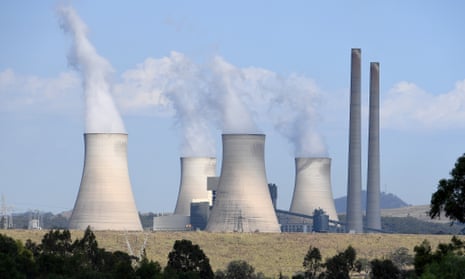The former Liberal party leader John Hewson and sustainable energy entrepreneur Simon Holmes à Court are among the signatories to a new open letter urging Malcolm Turnbull to implement three urgent reforms to the energy market to lower prices and emissions, and improve network security.
The Australia Institute has taken out a full-page advertisement in Wednesday’s Australian Financial Review calling on the government to act before the peaks in electricity demand hit next summer.
The group says demand peaks can be reduced by “changing market rules to allow very large consumers such as smelters to profit from demand management, such as via the proposed five-minute settlement rule.”
It says the government should adopt software systems to aggregate large numbers of commercial and industrial consumers into virtual peak plants that will provide safe and scheduled reductions in load, on commercially competitive terms.
The group also says new markets need to be built for additional services to reflect changing demands and technology.
The call to action is backed by the South Australian premier, Jay Weatherill. With national energy politics locked in a bitter partisan battle, the SA government recently unveiled a $550m plan to boost energy self-sufficiency in the state.
Weatherill told Guardian Australia: “It’s clear there’s now broad acceptance the national energy market is broken.”
“We’re supportive of the measures advanced in the letter, and we’ve been advocating for them at the national level,” the premier said.
Weatherill said South Australia would also continue to press the Turnbull government to introduce an emissions intensity trading scheme for the electricity market.
The Turnbull government has ruled out pursuing carbon trading despite a growing consensus among business, scientific and energy experts that an intensity scheme would create certainty for investors and lower emissions at least cost to households and businesses.
The push is also backed by the leader of the NXT, Nick Xenophon – who used a company tax deal with the Turnbull government last week to extract some undertakings on energy policy.
Xenophon said the Australia Institute, and the signatories to the open letter had “a positive role to play in suggesting changes to market rules.”
“I think this is an important contribution to the debate,” he said.
The Australia Institute’s executive director, Ben Oquist, says the problems in Australia’s energy market require a medium-term fix, but that doesn’t preclude the government taking immediate remedial action.
“While major new energy infrastructure can take years to finance and build, there are several actions that Australian governments could adopt immediately and in the medium term that would lower costs, enhance security and reduce emissions,” Oquist said.
He said the five minute settlement rule had the backing of the Australian Energy Market Operator and the Australian Energy Regulator, as well as other key industry and energy experts.
“It’s a straightforward change with wide-ranging benefits, most important of which will be create conditions to attract investment from fast responding energy technologies, such as batteries,” Oquist said.
The current rules see generators bid to supply power to the national market in five-minute intervals, but prices are determined over 30-minute intervals.
Critics of the current system say it is open to gaming by generators, who can create price spikes at the opening of a trading period before lowering their bids at the tail end of the interval – which has the practical effect of increasing wholesale prices.
Proponents of a change to a five-minute rule says the current process doesn’t allow sufficient capacity for battery technology to be part of a solution to smoothing out price spikes.
The Australian Energy Market Commission is considering submissions on potential rule changes, and is expected to provide a preliminary view this month.

Comments (…)
Sign in or create your Guardian account to join the discussion